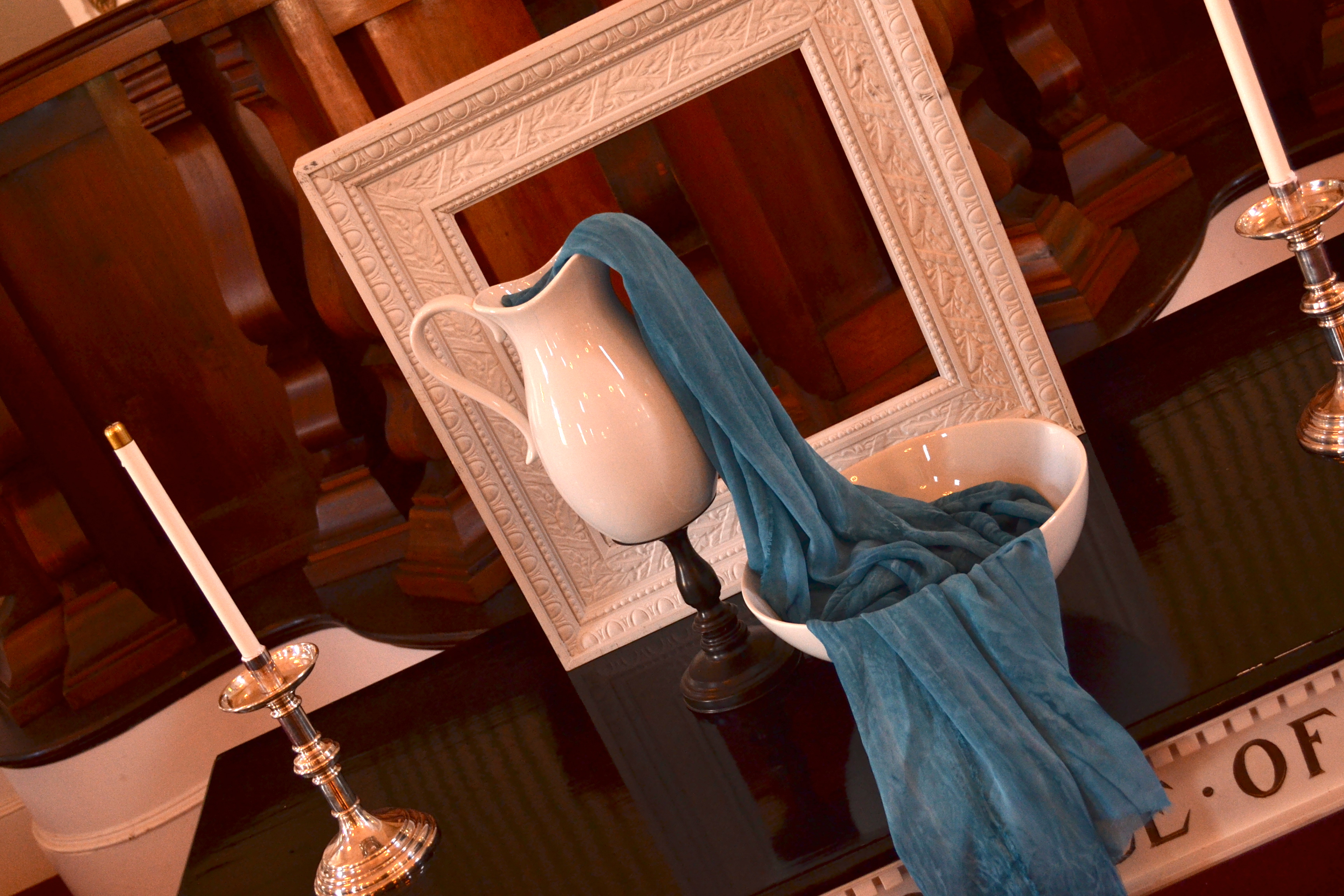Now when the apostles at Jerusalem heard that Samaria had accepted the word of God, they sent Peter and John to them. The two went down and prayed for them that they might receive the Holy Spirit (for as yet the Spirit had not come upon any of them; they had only been baptized in the name of the Lord Jesus). Then Peter and John laid their hands on them, and they received the Holy Spirit.
Acts 8:14-17, NRSV
“We moved to Atlanta in 1985,” a colleague of mine began, while preaching to a gathering of young clergy I was at last week. “My mother’s family were pig farmers in the rural community of Gainesville, north of the city, and every time they went to visit them, it felt like the trip took way longer than it should. One day, my brother was looking at a map and found a quicker, more direct route. ‘Why don’t we just take the highway to Gainesville?’ he asked our mother. She turned around in the seat and said, ‘Our people don’t go through Forsyth County.’”
You see, my colleague and his family are African-American. And even then, even during my lifetime, the talons of racism were so deep in Forsyth County, Georgia that this family had to worry about their safety on a highway. If you were a person of color, you just didn’t go through Forsyth County.
It was the same for the Jews when they thought of Samaria. The Israelites and Samaritans have a complicated history, which is why Jesus’ parable of the Good Samaritan would’ve been so striking to the people of the day, or why it was so revolutionary for him to interact the way he did with the Samaritan woman at the well. Do you remember how that went? Jesus approached a woman at Jacob’s well and spoke to her. “Can I have a sip?” And the she cocks her head at him. “You talking to me?” That’s the Jon Chapman translation, at least. Samaria just wasn’t a place Jews were welcome.
But things had changed in Samaria. That day, the day Jesus me the woman at the well, the apostles left that Samaritan town with some sandwiches. She left it with the whole town. And so, when word reached the Apostles in chapter 8 of Acts, they’re understandably excited. And decide that the best thing to do would be to head to Samaria and baptize people into their new faith.
Which is exciting and inspiring and thrilling until you consider one thing: Saul. Saul, who had yet to have the blinding-conversion experience that would turn him into the apostle we know as Paul, was on a rampage. Since the death and resurrection of Christ, a new thing was happening in Jerusalem. A group of Jews believed what they had long been waiting for had come to pass—the Messiah, the son of God, had indeed been among them.
And it’s in these first chapters of Acts that we glimpse what that means. It’s the earliest days of what is eventually known as “the church.” And these early followers are causing a stir. Peter’s sermons and the public works of the early apostles drew attention and with that attention came the ire of Saul, who was dedicated to persecuting the early Christians. Acts 8 starts this way:
And Saul approved of their killing [Stephen (known as the first Martyr). That day a severe persecution began against the church in Jerusalem, and all except the apostles were scattered throughout the countryside of Judea and Samaria. Devout men buried Stephen and made loud lamentation over him. But Saul was ravaging the church by entering house after house; dragging off both men and women, he committed them to prison.
Needless to say, things were grim. So, it was no small act for Peter and John to head to Samaria. In fact, I would say it was a remarkable act, an inspired act, a bold act.
So Peter and John head into Samaria and find a new community of believers who have been baptized—a ritual of membership in the church we still share today. But, the scriptures tell us, the newly baptized hadn’t encountered the Spirit yet. And so, Peter and and John, pray. And you know, I can’t tell you what they prayed that day. But I bet I can tell you what it wasn’t: It wasn’t a tepid prayer. It wasn’t a prayer that was an afterthought. Can you imagine Peter saying, “Well, I guess it’d be good if we pray…”
No, we can be confident that it was a bold prayer, an assured prayer. How does the old hymn go? “Blessed Assurance, Jesus is mine!” I doubt they used those exact words, but the sentiment was the same. They knew who was their Messiah. They’d seen him die, the world mocking as he hung on wood crafted to be a instrument of torture. They’d seen the empty tomb. They’d been there later, when they were regrouping and, truth-be-told, terrified when Jesus appeared to them. And though they didn’t see him, they knew there was something worth being bold about.
I’ve been thinking a lot about that idea recently, about the idea of being bold. Last week, I told you a story about our bold witness to God’s love over the holiday season that took the form of six brightly colored signs and a playful sign. That was one way we were bold in 2015, one of many ways that we boldly said who we were and who we believe God to be. And the best part was that we kind of stumbled into it. We always knew who we were, where we stood. But we’ve got a deeper sense of clarity about what that means. And that’s a gift—a gift we can’t let go to waste.
So this year, I’ve made a New Year’s resolution, one I want to invite you, the people of Westfield, to adopt as your own. This year, I want to be bolder. Intentionally, unabashedly bolder.
When Jesus broke the surface of the Jordan, coming up after John had plunged him beneath the surface, the voice of God, we’re told, “the Holy Spirit descended upon him in bodily form like a dove. And a voice came from heaven, ‘You are my Son, the Beloved; with you I am well pleased.’”
It wasn’t a subtle sign—there was no timidity about it. It wasn’t uncertain or unsure. There wasn’t anything iffy about. When God’s Spirit shows up like a bird with a voice, you can be confident the message gets across. It was a bold, unhindered act, full of grace and truth.
Why is it, then, that we settle for so much less when compelled by our own baptisms? We might not have had birds, but we’ve got each other—trumpeting from the pews how every one we baptize is beloved of God, how every one of you is beloved of God.
If God has called us, each of us, beloved—the very affection-laden term God called her very own son, then we have no room for timidity. Be Bold. We have no time for subtly. Be Bold. There’s no place for iffy-ness. Be Bold. We can’t be shy. Be Bold.
We’ve got this story—a story of how God loved the world he created so much that God came to swell among us. Jesus taught us how to heal and love and forgive. He taught us how to eat and share and hope. He pondered and prayed. He suffered and died. He rose. None of that happened so we can be bashful.
This year, together, let’s be bolder. Let’s boldly proclaim God’s welcome. Let’s boldly proclaim God’s hope. Let’s boldly proclaim God’s promise. And Let’s boldly proclaim God’s love.
Thanks be to the One who emboldens us each. Amen.



Get blog updates in your inbox!
Join my mailing list to receive the latest posts about creative visuals in worship, sermons, and more from revjonchapman.com.
You have Successfully Subscribed!